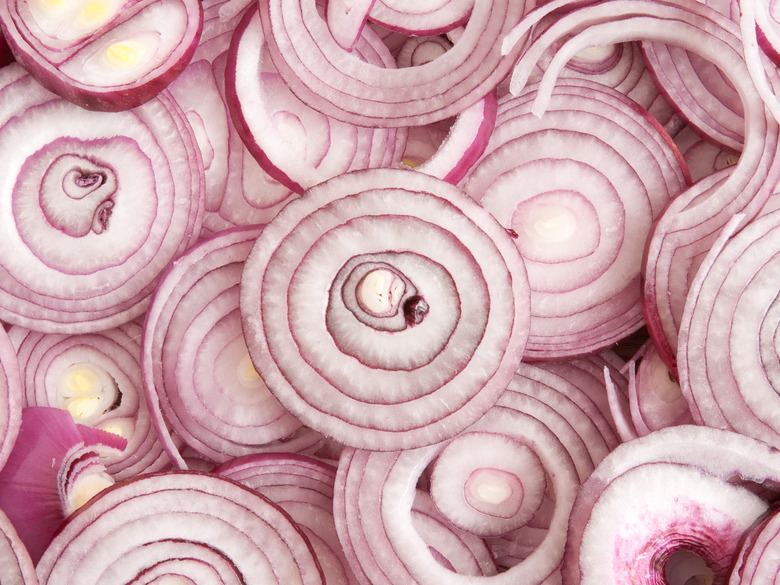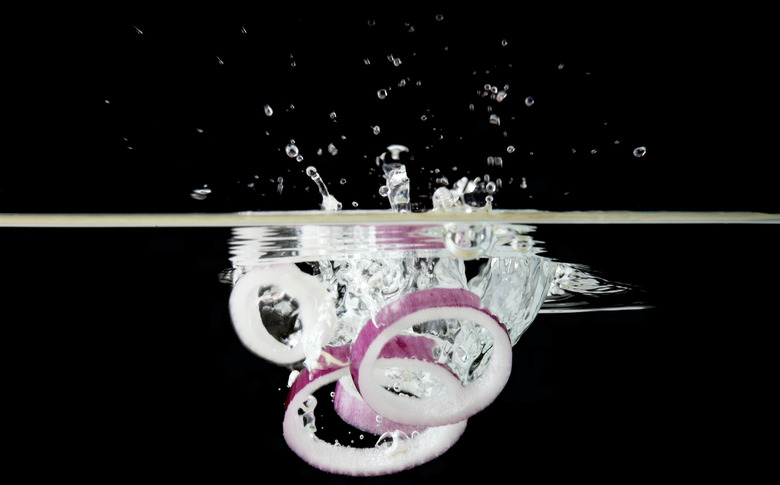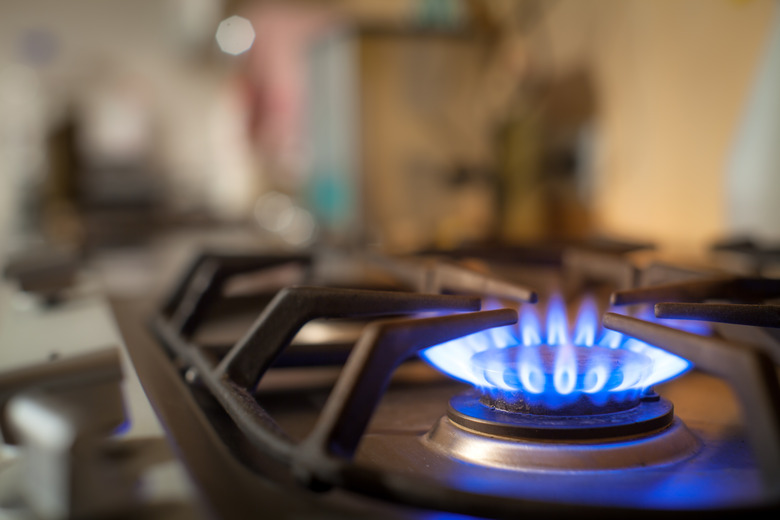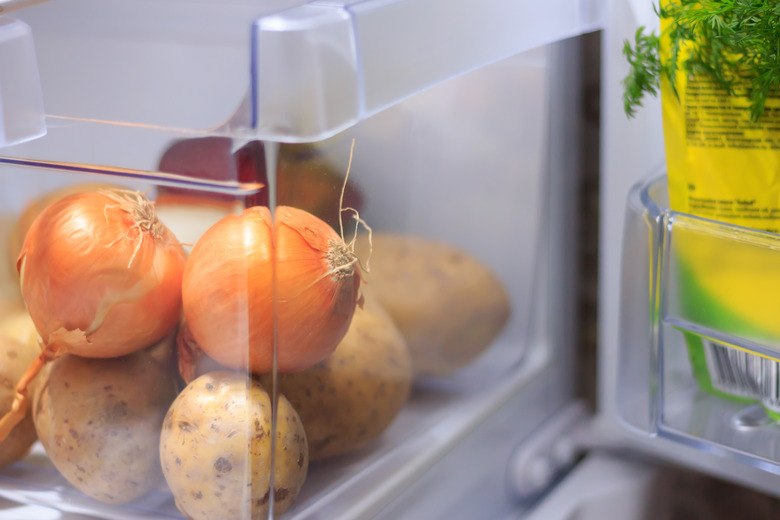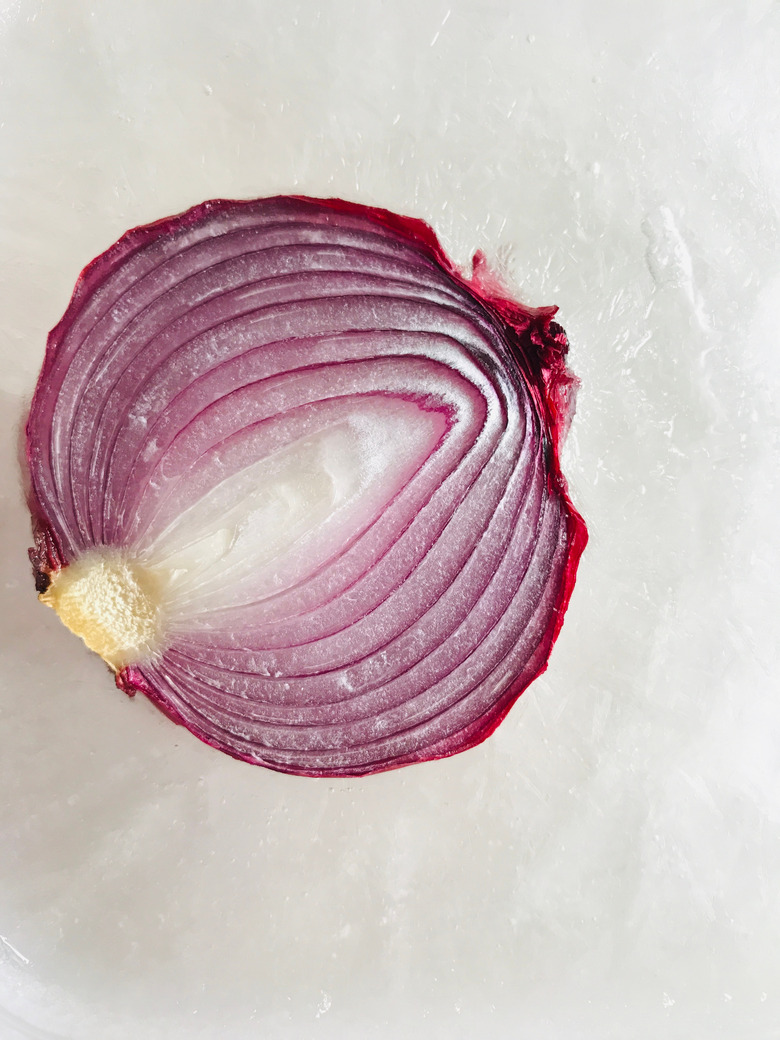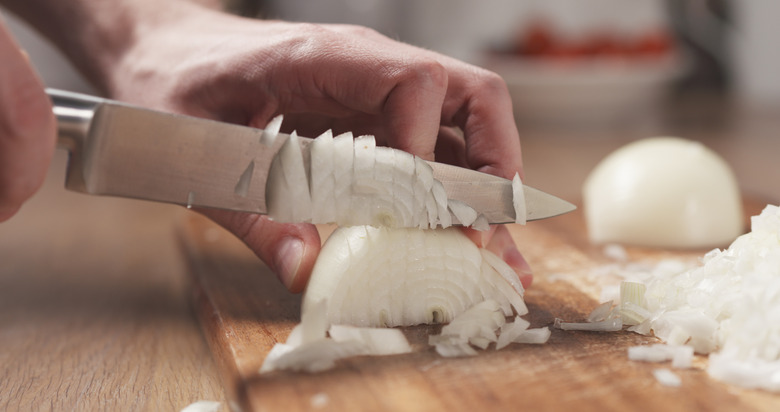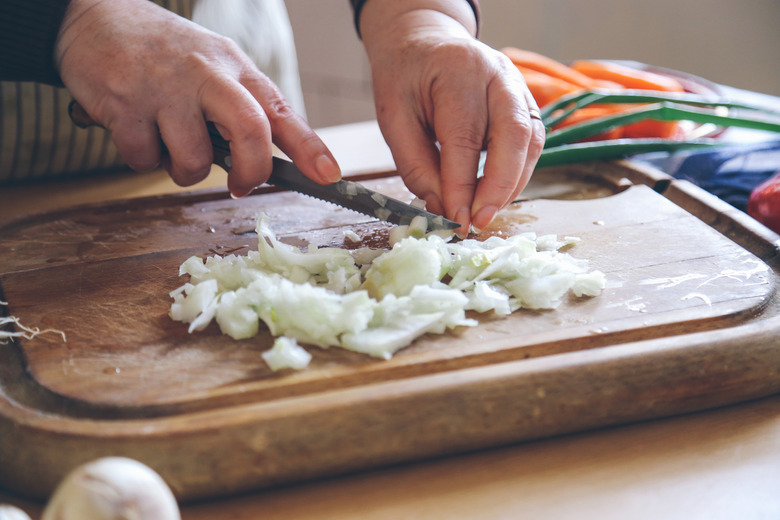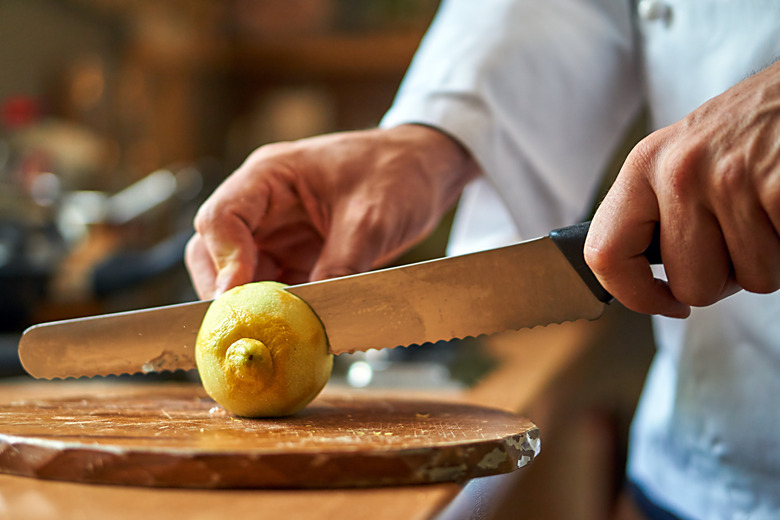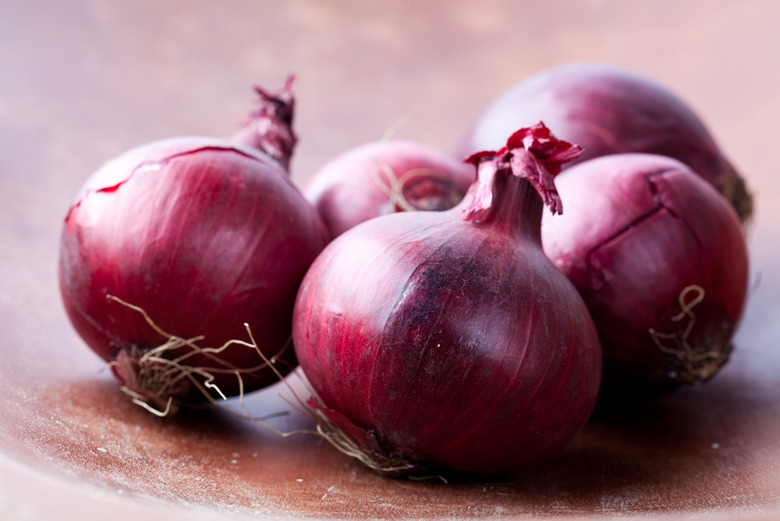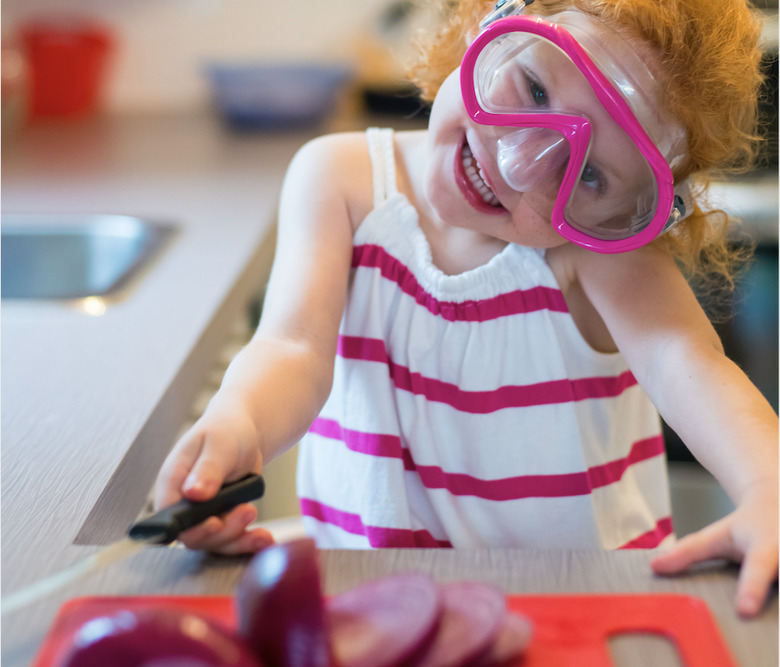How To Chop An Onion Without Crying
Knife? Check. Cutting board? Check. Onion? Check. Spacesuit? Check. Avoiding tears when chopping onions is no easy task. But why does it make us cry, exactly? Let's get scientific for a minute: When you cut an onion, enzymes in the skin of the onion come into contact with air and turn into an eye-irritating chemical. Your cornea has free nerve endings that are connected to your central nervous system. When that chemical hits those free nerve endings, your central nervous system responds to that burning sensation by producing tears.
Thankfully, there are ways to remedy this situation, but not every solution works for everyone. Finding what works best for you might take some experimentation, but we've gathered all the best tips to keep those tears at bay when cooking with onions. And no, you won't actually need a spacesuit.
Cut it underwater
Fill a bowl — flat-bottomed works best — with chilled water. Place the onion in the bowl, and slice it under the surface of the water. It can be a bit cumbersome because the lip of the bowl will inhibit your wrist motion, but if you hold the onion tight and angle the knife safely, the water works to block those irritating enzymes from hitting the air, and thus your eyeballs.
Do it near an open flame
This has been Martha Stewart's tried-and-true method since her catering days. The reason this is effective is a bit of a mystery. The best hypothesis is that as the flames feed on oxygen, they pull the onion fumes away from your eyes and toward the thirsty flames. While you can try a candle, Stewart suggests placing your cutting board near the open flame of your gas stove; just be extra careful to not start a fire.
Put it in the fridge first
Chilling the onion first, whether it's for 30 minutes or 24 hours, can slow the chemical process that turns the enzymes into gases. Pop one in the fridge if you know you're going to be using it soon, and you'll be tear free when it comes time to chop. But don't store your onions in the fridge; they're one of the foods that you should never refrigerate.
Freeze it if the fridge isn’t enough
Maybe your eyes are really sensitive and the weak fridge chill wasn't enough to protect your corneas. Freezing the onion may help. It'll get even more chilled, and that could further slow the chemical process. Even though onions aren't one of the foods that you should never freeze, note that the first layer might freeze up a bit, so it might be more difficult to cut.
Keep your cutting knife sharp
You can thank science for this one too: The sharper the knife, the cleaner the cut, the less damage to the cells in the onion and thus fewer fumes going straight for those tear ducts.
Don’t touch your face
This one should be obvious, but we'll keep it on the list for good measure. Rubbing those tears away with your hand while you're mid-cut is not the greatest move. You have an open onion on the table, and you do not want direct contact with the enemy enzymes.
Chop it under a vent or near a fan
Avoiding tears means minimizing the gases that cause those tears. Place your cutting board near the vent fan from your stove or work under a ceiling fan or near a room fan. Taking these measures could blow the gases away while you slice and dice.
Try lemon juice
Lemon juice has a lot of uses, like for polishing pans, removing odors from the microwave or for killing bacteria in the dirtiest places in your kitchen. It can also be a helpful way to tamp down onion fumes. Rub a slice of lemon over your blade and chop away. You may need to reapply some lemon juice as you go.
Keep the roots attached
The part of the onion at the base, where the roots come out, should not be the first part of the onion that's removed. According to chef Gordon Ramsay, when the top of the onion in severed, the whole surface begins letting off gases before you begin the actual chopping. Place the whole onion on the cutting board and cut up to the end as opposed to removing it first.
Wear goggles
Use some old swim goggles, pull out those goggles from your chem class you thought you'd never use again or buy special onion goggles (yes, they exist). It may be extreme, but the protective shield will keep the chemicals from coming into contact with your corneas. Looking for more kitchen hacks? These are the best ones we learned from our parents.
More from The Daily Meal
The Official State Dish of Texas and 35 Other Fun Food Facts
The Best Foods to Bring to a Party
The Best Comfort Foods to Make Ahead and Freeze for a Weeknight
